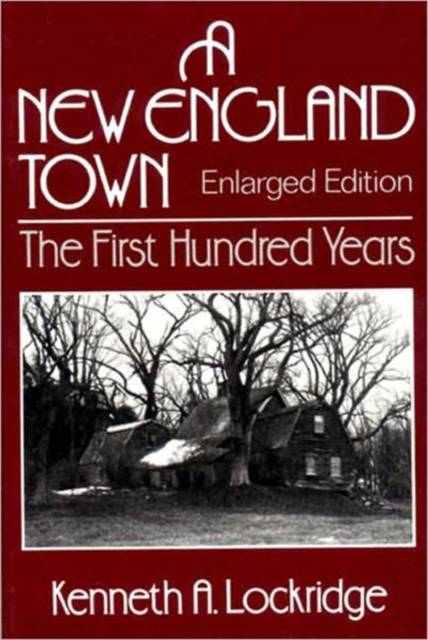
- Afhalen na 1 uur in een winkel met voorraad
- Gratis thuislevering in België vanaf € 30
- Ruim aanbod met 7 miljoen producten
- Afhalen na 1 uur in een winkel met voorraad
- Gratis thuislevering in België vanaf € 30
- Ruim aanbod met 7 miljoen producten
Omschrijving
The colonial New England Town is one of the myths of American history, along with such others as George Washington and the Cherry Tree and The Frontier. They are difficult to shatter, for they perpetuate the popular belief that the nation has always enjoyed universal democracy, honesty, and opportunity. The New England Town, however, deserves more than a mythical place in American history. In this industrial village society, the unique American experience had its beginnings.
In his highly original and controversial study. Professor Lockridge traces the origins of Dedham, Massachusetts, carefully examining its establishment as a utopia in 1636, the changes that occurred during the first four generations of its settlement, and the kind of community it had become by the mid-eighteenth century. In bringing to life this peculiarly American town he creates a view of all New England towns, so vital to an understanding of how the American character and society were shaped. He also gives answers to the basic questions shrouded by the myths: Was the New England Town democratic? Was it equalitarian? Was opportunity great? was society mobile? was it static or dynamic? Who had power, and who wanted it? In examining these questions Professor Lockridge has gone to the heart of the controversy surrounding the New England Town experience, finding some truth, and not a little irony, in the myth.
This enlarged edition includes an updated bibliography and an afterword in which Lockridge addresses two questions about the story of Dedham: What does it tell us about the impulses that led to American independence? The answers to these questions suggest the connections between the "new" social history and the broad political themes of the revolutionary period.
Specificaties
Betrokkenen
- Auteur(s):
- Uitgeverij:
Inhoud
- Aantal bladzijden:
- 238
- Taal:
- Engels
- Reeks:
Eigenschappen
- Productcode (EAN):
- 9780393954593
- Verschijningsdatum:
- 17/08/1985
- Uitvoering:
- Paperback
- Formaat:
- Trade paperback (VS)
- Afmetingen:
- 135 mm x 203 mm
- Gewicht:
- 258 g

Alleen bij Standaard Boekhandel
Beoordelingen
We publiceren alleen reviews die voldoen aan de voorwaarden voor reviews. Bekijk onze voorwaarden voor reviews.











